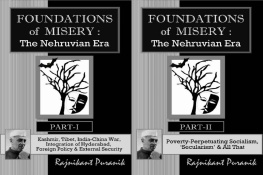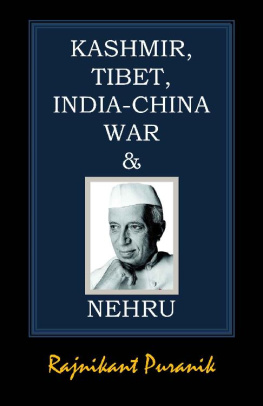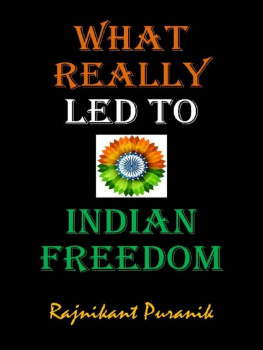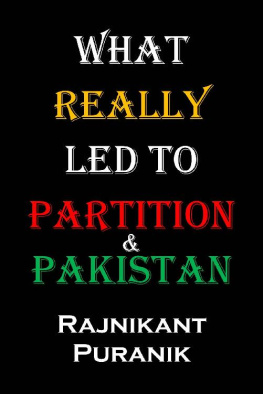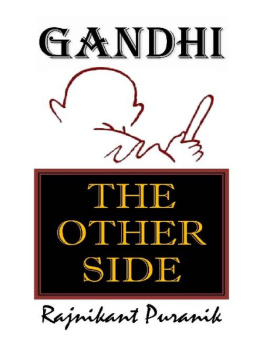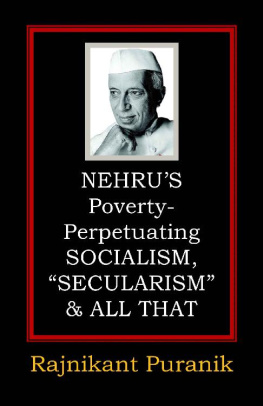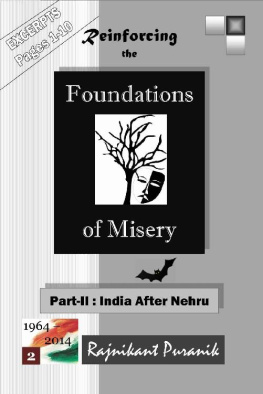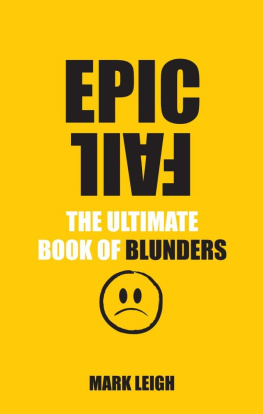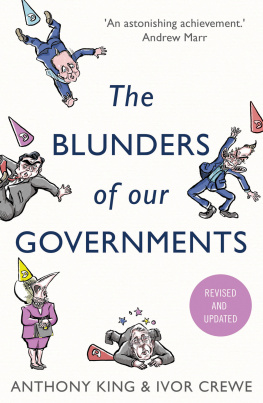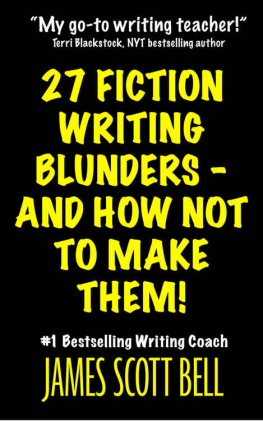Study the past, if you would divine the future.
Confucius
THIS BOOK IS HIGHLY RELEVANT FOR THE CURRENT TIMES TOO.
Unabridged Edition, April 2019
Revised & Enlarged to
127 MAJOR BLUNDERS
Rajnikant Puranik
Nehrus 97 Major Blunders
by
Rajnikant Puranik
Categories: Non-fiction, History
Third Edition, April 2019
Revised, Enlarged & Unabridged Edition
as Kindle eBook, and as Paperback Abroad on Amazon.
Copyright 2019 Rajnikant Puranik
First Kindle Digital Edition: July 2016
Copyright 2016 Rajnikant Puranik
First Hardback Abridged Edition: Pustak Mahal, Nov-2016.
Revised & Abridged Hardback Edition, Sep-2018
available at PustakMahal.com and Amazon.
Please check
www.rkpbooks.com
for all the books by the author.
All rights reserved. No part of this publication may be reproduced, distributed or transmitted in any form or by any means, whether electronic/digital or print or mechanical/physical, or stored in an information storage or retrieval system, without the prior written permission of the copyright owner, that is, the author, except as permitted by law. However, extracts up to a total of 1,000 words may be quoted without seeking any permission, but with due acknowledgement of the source. For permission, please write to rkpuranik@gmail.com.
Table of Contents
Preface
...[then] it seemed to me that Jawaharlal should be the new President [of Congress in 1946and hence the first Prime Minister] ...I acted according to my best judgement but the way things have shaped since then has made me to realise that this was perhaps the greatest blunder of my political life... My second mistake was that when I decided not to stand myself, I did not support Sardar Patel.
Abul Kalam Azad, India Wins Freedom {Azad/162}
He [Nehru] had no idea of economics. He talked of socialism, but he did not know how to define it. He talked of social justice, but I told him he could have this only when there was an increase in production. He did not grasp that. So you need a leader who understands economic issues and will invigorate your economy.
Chester Bowles, US Ambassador
On Nehru: a man of echoes and mimicry, the last viceroy rather than the first leader of a liberated India.
Malcolm Muggeridge, British journalist {SG/193}
If the future is full of hope it is largely because of Soviet Russia.
Jawaharlal Nehru {URL28}
A young man who isn't a socialist hasn't got a heart; an old man who is a socialist hasn't got a head.
David Lloyd George, UK PM (1916-22)
Poor countries are poor because those who have power make choices that create poverty. Such countries develop extractive institutions that keep poor countries poor.
Daron Acemoglu and James A. Robinson in Why Nations Fail
(Nehru laid the foundations of Extractive Institutions)
Said Nehru
(The Nabob of Cluelessness, as someone remarked)
I can tell this House [Parliament] that at no time since our independence, and of course before it, were our defence forces in better condition, in finer fettle...than they are today {Max/132} (prior to 1962 India-China war)
(I hope I am not leaving you as cannon fodder for the Chinese. God bless you all.Army chief KS Thimayya in his farewell speech in 1961)
It is completely impracticable for the Chinese Government to think of anything in the nature of invasion of India. Therefore I rule it out... {AS/103}
We were getting out of touch with reality in the modern world and we were living in an artificial atmosphere of our creation... {Zak/149}
We feel India has been ill-repaid for her diplomatic friendliness toward Peking... Difficult to say the Chinese have deliberately deceived us... We may have deceived ourselves... {AS/38}
But for a series of major blunders by Nehru across the spectrumit would not be an exaggeration to say that he blundered comprehensivelyIndia would have been on a rapidly ascending path to becoming a shining, prosperous, first-world country by the end of his term, and would surely have become so by early 1980sprovided, of course, Nehrus dynasty had not followed him to power. Sadly, the Nehru era laid the foundations of Indias poverty and misery, condemning it to be forever a developing, third-rate, third-world country. By chronicling those blunders, this book highlights THE FACTS BEHIND THE FACADE.
Blunders is used in this book as a general term to also include failures, neglect, wrong policies, bad decisions, despicable and disgraceful acts, usurping undeserved posts, etc.
It is not the intention of this book to be critical of Nehru, but historical facts, that have often been distorted or glossed over or suppressed must be known widely, lest the mistakes be repeated, and so that India has a brighter future.
Unable to eulogise Nehru on facts, many admirers resort to innovative counterfactuals like: Had it not been for Nehru India would not have remained united and secular. But for Nehru, there would have been no democracy, and the citizens would not have enjoyed freedom... (Pl. check chapter-9) If facts dont help you, go by presumptions and probabilities!
What if one advanced an alternate counterfactual and argued that an alternate person (like say Sardar Patel or C Rajagopalachari or Dr BR Ambedkar) as prime minister would have made India more united, more secure, more secular and free from communalism, more democratic and much more prosperouson way to a first-world nation by 1964!
Nehrus leadership is unique not only in terms of the paucity of achievements, or the large gap between the potential and the actuals, or a very poor show compared to other comparable nations; but in the blunders that he made. Other leaders too make mistakes, but Nehru can beat them all hands down. The number, the extent, and the comprehensiveness of the Nehruvian blunders cant be matched. Comprehensive? Other leaders blunder in one or two or three areas. Not Nehru. His was a 360 degree coverage. He blundered in practically all areas (and sub-areas, and in very many ways): external security, internal security, foreign policy, economy, education, culture, its a long list. An examination of his record leaves you gasping. Here is a very cryptic label to capture the essential Nehru: Nabob of Cluelessness.
Nehru bequeathed a toxic political (dynastic and undemocratic), economic (socialistic), industrial (inefficient and burdensome public and state sector), agricultural (neglected and starved), geographic (most borders insecure), administrative (incompetent and corrupt babudom), historical (Marxist and Leftist distortion), educational (elitist, and no universal literacy), and cultural (no pride in Indian heritage) legacy.
Of course, quite irrespective of the fact that the balance-sheet of the Nehru-period was deep in red, it cannot be denied that Nehru meant well: it is another matter that his erroneous understanding of economics, foreign affairs, external security and many more things led to policies that proved disastrous for the country. Also, he was well-intentioned. But, then, road to hell is often paved with good intentions!
One may say: Why sweat over Nehru? He is long gone. Long gonephysically. But, much of his thinking and policies still unfortunately survive. It is necessary to understand that he followed a wrong path, and the nation needs to gain freedom from those ideas and forge ahead. There is nothing personal here. Nobody has anything against Nehru, as a person. But, if thanks to his policies, millions suffered, and thanks to the continuation of his policies, millions continue to suffer, then it is not a dead historical question.


